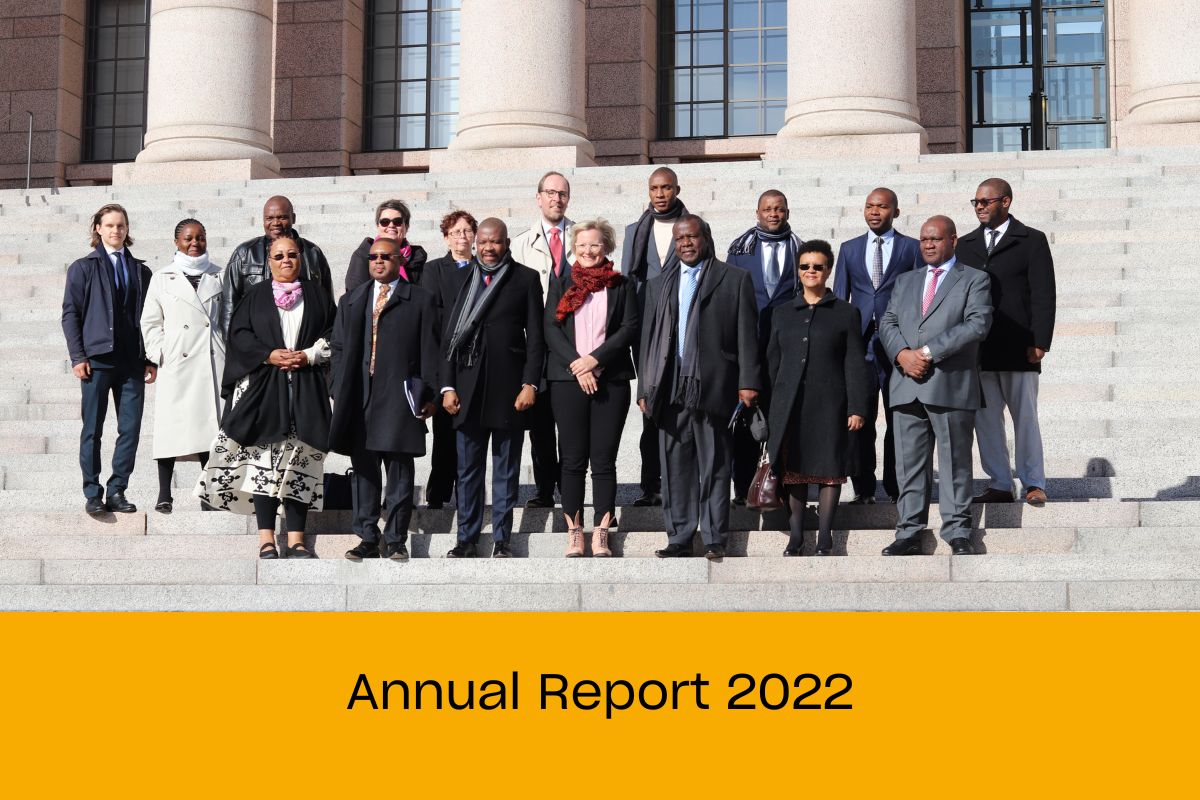2022 was a dramatic year, as Russia’s unprovoked attack on Ukraine did untold damage to the rules-based international order and changed the way democracy is seen around the world. It became very clear that democracy and security are inextricably linked.
Despite the challenging circumstances, Demo Finland has successfully continued its work to implement its vision where everyone has the opportunity to equally participate in democratic decision-making. It continues working towards this goal by focusing on strengthening the voices of underrepresented groups in politics, including women, young people and persons with disabilities, among others, and by supporting multi-party dialogue. This annual report shows the very real results that Demo Finland and its partners have achieved in 2022.
In 2022, we
- supported programmes in 9 countries (including Finland)
- worked with 101 political parties
- reached 1527 female and 1174 male politicians in our international programmes
Highlights of our results
In Kenya, political parties waived and subsidised nomination fees for candidates with disabilities, awarded their direct nomination to vie for the August 2022 elections and included persons with disabilities (PWDs) in the Special Interest Groups (women, youth, PWDs) nomination lists. Four PWDs were elected as Members of County Assemblies and nine PWDs were elected as Members of Parliament which demonstrates that political parties have made efforts to create a conducive environment for PWDs to participate in politics.
In Sri Lanka, 56 Women’s Committees were established in local councils which is a significant structural change in the local governance system. The Committees were created due to the interest and activity of women councillors themselves, and they have created an enabling environment for women councillors to work together.
In Mozambique, parliamentary oversight on the extractive industry was strengthened. Oversight visits by Members of Parliament and Members of Provincial Assemblies to communities affected by the extractive industry were carried out with greater knowledge and ownership, and better-quality reports were produced where MPs and MPAs presented well-structured results as well as recommendations to stakeholders according to their area of intervention and responsibility.
In Tunisia, Youth Collaborative Platform was developed from an online platform into a meeting place for young people outside of the capital area. It brings together prominent youth activists from political parties and civil society who want to be vocal in the new changed political situation and to defend democracy.
In Zambia, trainings and workshops for political parties on disability inclusive measures and disability inclusion plans helped political parties to identify existing gaps in disability inclusion within their respective structures and processes as well as measures to tackle them. Parties also agreed to collaborate on advancing disability inclusion in politics.
In Ethiopia, post-election trainings equipped women politicians with more knowledge and increased understanding of women’s political leadership. Further, the cross-party interactive workshops and experience sharing gatherings with youth politicians provided a platform for increased collaboration between opposition and ruling party politicians as well as young people and politicians.
In Myanmar, an online application was launched to offer high-quality democracy education to democratic actors in the difficult political situation that the country is facing. Participants of the application’s launch event expressed great excitement about the application’s potential as a comprehensive and accessible learning tool.
In Finland, Demo Finland founded a working group together with all parliamentary parties, which aims to advance the inclusion of persons with disabilities (PWDs) within Finnish political parties. The working group has provided a space for the parties to discuss strategies and practices of disability inclusion, and the members of the working group have begun to monitor their parties’ strategies and policies related to the inclusion of PWDs.
Read our Annual Report 2022 here (opens in a new tab).

